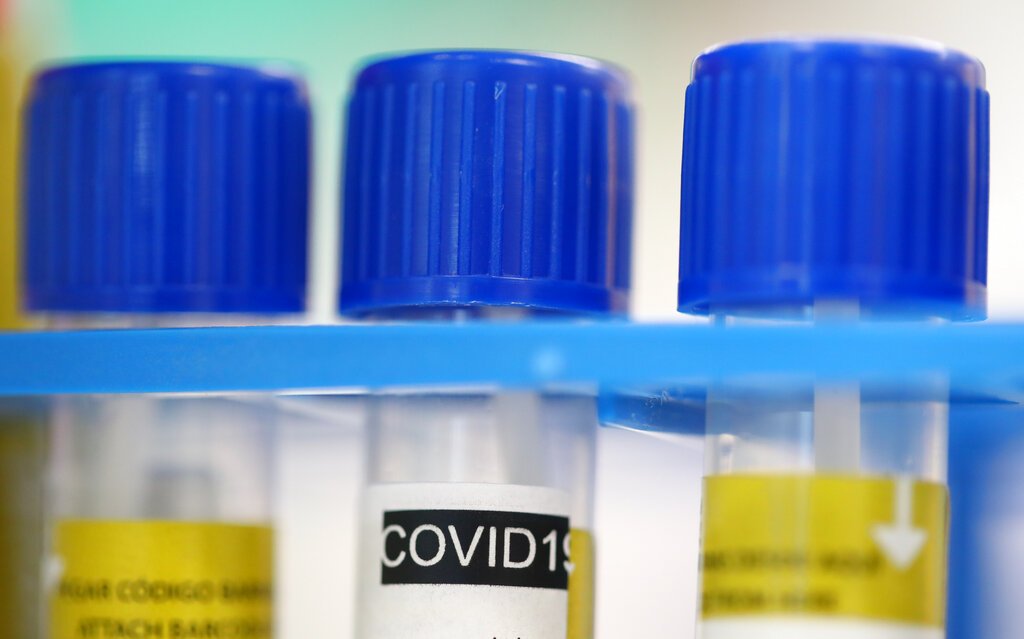MANILA, Philippines — As the number of patients who had recovered from COVID-19 exceeded the death toll for the first time on Wednesday, the head of the Chinese medical team currently in the country recommended that the government take in more mild cases to prevent their condition from deteriorating.
According to Dr. Weng Shangeng, the Philippine government should expedite its identification of “fangcang” — shelter hospitals for mild cases — to not only curb infections but also to improve the chances of recovery of patients.
“Because of the limited beds and testing capacity in the Philippines, many of the COVID-19 patients are still quarantined at home. [With the fangcang hospitals,] mild cases can be admitted for observation so as to prevent mild cases from becoming severe cases,” said Weng in a video posted by the Chinese state media CCTV.
‘Fundamental measure’
Weng, vice president of First Affiliated Hospital of Fujian Medical University, heads the 12-member medical team that is in the country for two weeks to assist the Department of Health (DOH) in its COVID-19 response.
He said this “fundamental measure” would not only help the government improve the recovery rate but also cut down the infection rate of SARS-CoV-2, the new coronavirus that causes COVID-19.
Three community quarantines have been set up for around 900 mild COVID-19 cases. These are the Philippine International Convention Center, Rizal Memorial Coliseum and World Trade Center.
Also being converted into a quarantine center is Philippine Arena in Santa Maria, Bulacan province.
As of Wednesday, the total number of confirmed COVID-19 cases across the country stood at 5,453 with the addition of 230 new infections. In Southeast Asia, the Philippines has the most number of cases followed by Indonesia and Malaysia.
Since local transmission of the virus was recorded in March, the total number of recovered patients surpassed for the first time the death toll on Wednesday. The DOH reported 58 more recoveries, bringing the total number of survivors to 353.
Fourteen more patients died, raising to 349 the number of patients who had succumbed to the severe respiratory disease.
Health Undersecretary Maria Rosario Vergeire said the new recoveries included positive patients on home quarantine since they only presented mild symptoms or were asymptomatic.
Earlier, Vergeire explained that the reason the death toll was higher than the number of recovered patients was because it takes on average two weeks for patients with mild symptoms to recover. For severe to critical cases, it can take up to six weeks.
There is also still no cure for COVID-19 as hospitals only provide supportive treatment to whatever disease the patients may have developed.
Meanwhile, there are now 16 accredited testing centers nationwide with the addition on Wednesday of the Philippine Red Cross in Mandaluyong City, Vergeire said. She added that 47 more laboratories are awaiting certification.
39,947 tests
As of Tuesday, a total 39,947 tests, including repeat tests, have been conducted, of which 5,782 are positive and 34,116 are negative. The remainder are inconclusive.
Once a daily testing capacity of 8,000 is reached, the DOH’s “progressive expanded testing” protocol will include patients with mild symptoms or are asymptomatic, Vergeire said. For now, priority is still given to those who are severely ill, belong to the vulnerable population, have preexisting ailments and symptomatic health workers.
Following reports that some hospitals no longer accept patients with illnesses other than COVID-19, Vergeire urged local officials to oversee and ensure that hospitals in their area still provide essential health services.
These include prenatal and newborn care, immunization for children aged 0-12 months, management of malnutrition and micronutrient supplementation, treatment of TB/HIV, and mental health services.


